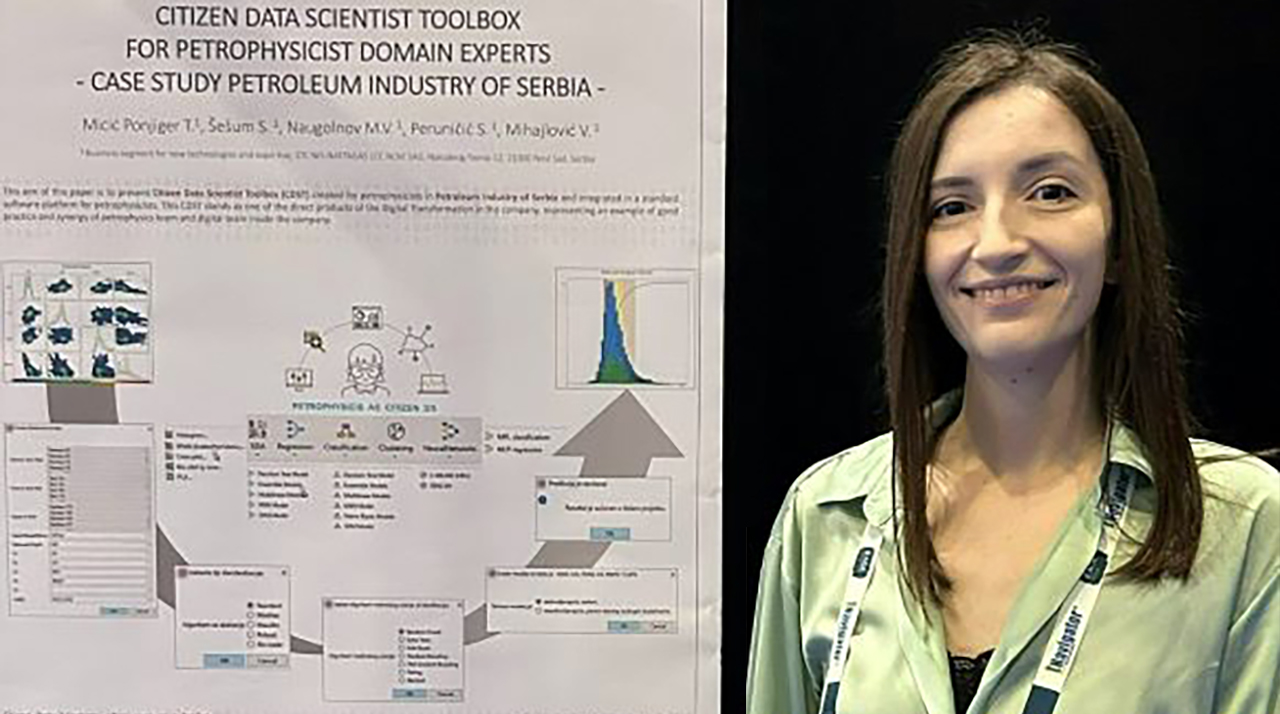Since the beginning of this year, Tanja Micić Ponjiger, NTC's Chief Research and Development Expert, was twice in England, the first time as a doctoral student, and the second time in the capacity of a presenter at the EAGE scientific conference focusing on digitalization in the oil industry.
At the invitation of Professor Dr. Robert Wilby, from the prestigious University of Loughborough, our Tanja spent a month in Loughborough, in the heart of England.
She went there as a researcher associate within her doctoral studies, as part of one of the "Horizon 2020" projects, sponsored by the University of Novi Sad, which supports research exchange with institutions of scientific excellence, in a bid to strengthen the capacity of doctoral students, professors and non-teaching staff at the University.
Together with Professor Wilby Tanja carried out the final calculations within her doctoral dissertation entitled "Soil erosion in the region of the Western Balkans".
- It is, so far, an unexplored area, but this is a very important topic taking into account that 95% of food (directly or indirectly) comes from the soil. If it is endangered, and it is due to climate change and ways of arable land cultivation, humanity nutrition is also under threat. On average it takes 1,000 years to renew a single centimetre of fertile soil, and much faster is lost - Tanja points out.
Loughborough University ranks among the top 10 in the UK, which is a serious title with regard to competition, such as Oxford, Cambridge, Imperial London University and others contained in the list of the world's best universities. And she also represented us one of the best ...
Since 2016, Tanja has been a staff member of NTC. Over the course of the recent two years, she keeps winning awards at the Scientific and Technical Conference. She produced numerous scientific papers and attended various scientific conferences as presenter all over the world. The condition for university exchange is that the other side has benefits from that visit, and Tanja shared here extensive expertise with her peers and professors there.
- Thanks to the fact that I work on digital projects, I am in contact with mechanical learning algorithms and tools of artificial intelligence, and I could provide them with unknowns in the field of computer science research and for manipulating large data sets. I had the opportunity to give a lecture to postgraduate students, where I used one of my recent scientific papers as an example to demonstrate more on that topic. The academic community is generally extremely concerned due to the ease of plagiarism and potential abuses that the application of artificial intelligence algorithms carry with them as a risk. Computer technologies are developed too quickly in relation to the pace of scientists who are not directly from that area, and it was a pleasure to answer questions from that domain - says Tanja.
While in Loughborough University, She was especially delighted with the level of communication and culture of dialogue.
- The discussion that evolves after literally every lesson, at all levels of lectures, is really priceless. All the participants there are so enthusiastic, nobody shuns asking questions, generally critical thought and active listening are encouraged, and such an environment is really very inspiring - concludes Tanja.
And that is one of the reasons why Tanja likes international conferences, they are also a place of dialogue and open discussions.
This year, another opportunity to go to England was the EAGE Conference "Technology Driving Innovation for the Future", which was held in London. Tanja's work she presented there, is a result of a series of projects "Advanced Petrophysics": a digital tool created with the aim of optimizing and improving the daily routine of a petro physicist.
- The tools created within the digital laboratory are given to the user and its environment, everything is implemented in existing software for Petrophysics. So we think when we create new tools - we think of the end user in the desire to optimize the process, to improve it, and get a better result - Tanja explained.

